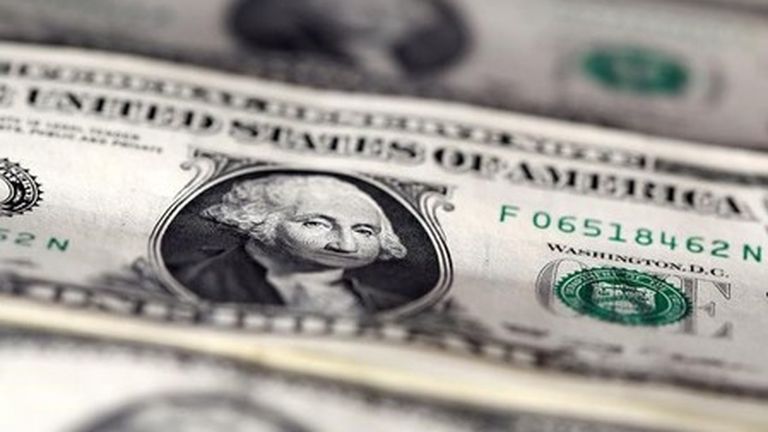The dollar was stable on Friday, hesitating between comments from the Federal Reserve urging caution on a future rate hike and its status as a safe haven in a context of geopolitical uncertainty, while bitcoin briefly exceeded the $30,000 mark .
Around 3:00 p.m. GMT (5:00 p.m. CET), the greenback was slightly down against the single currency, which gained 0.08% to 1.0591 dollars, and against the British pound, which gained 0.05% to 1.2150. dollar.
Cautious remarks from the president of the US central bank (Fed) on Thursday affected the dollar’s gains, and on Friday afternoon “the market seemed to have interpreted these comments as a signal indicating that the Fed had finished its rate hikes” by the end of the year, estimated James Harte, analyst at Tickmill.
Inflation in the United States remains too high, Fed Chairman Jerome Powell said on Thursday, while emphasizing the need to move forward “cautiously” so as not to harm the economy – without, however, ruling out further raising inflation. rate if necessary.
Against currencies considered more volatile, such as the Australian dollar, the greenback still benefited from the “rise in American yields”, explained Ipek Ozkardeskaya, of Swissquote Bank, as well as the influx of investors towards “safe havens” in an uncertain geopolitical context.
Taking advantage of the same dynamic, an ounce of gold rose 0.67% to $1,992.53, its highest since May.
Bitcoin also showed an increase of 2.95% to $29,577 after briefly exceeding the $30,000 mark on Friday, reaching $30,223.
This increase was due to market rumors regarding the imminence of a bitcoin index fund, which would directly track the price of the cryptocurrency: although false, they “allowed investors to see the potential for exponential gains in the event of “official approval” of this type of fund, according to Walid Koudmani, analyst at XBT.
It would allow more of the general public to invest in bitcoin without having to purchase it directly.
The analyst also noted the recent legal victory of Grayscale, a major cryptocurrency asset manager, against Wall Street’s watchdog, the SEC, which denied it the right to list its bitcoin ETF on the stock market.
For its part, the pound also hesitated against the euro, posting a slight decline of 0.03% to 87.17 pence.
“The data released today highlighted the risks of a further period of economic contraction in the United Kingdom,” said Derek Halpenny, analyst at MUFG, which may encourage the Bank of England (BoE) to continue the pause in its cycle of monetary tightening.
Retail sales fell by 0.9% in September, the National Statistics Office (ONS) said, while the GfK consumer confidence index fell significantly in October.
However, inflation interrupted its decline in September in the United Kingdom, stagnating at 6.7% over one year, and it remains the highest in the G7, which on the contrary could argue for a more aggressive monetary policy to do so. face.
“Wage growth as measured is still far too high to be in line with the objective” of 2% inflation, BoE Governor Andrew Bailey told the Belfast Telegraph on Friday.
Mr Bailey, however, expects a “notable drop” in inflation next month, followed by a more gradual decline, in line with previous BoE forecasts.
This article is originally published on zonebourse.com


